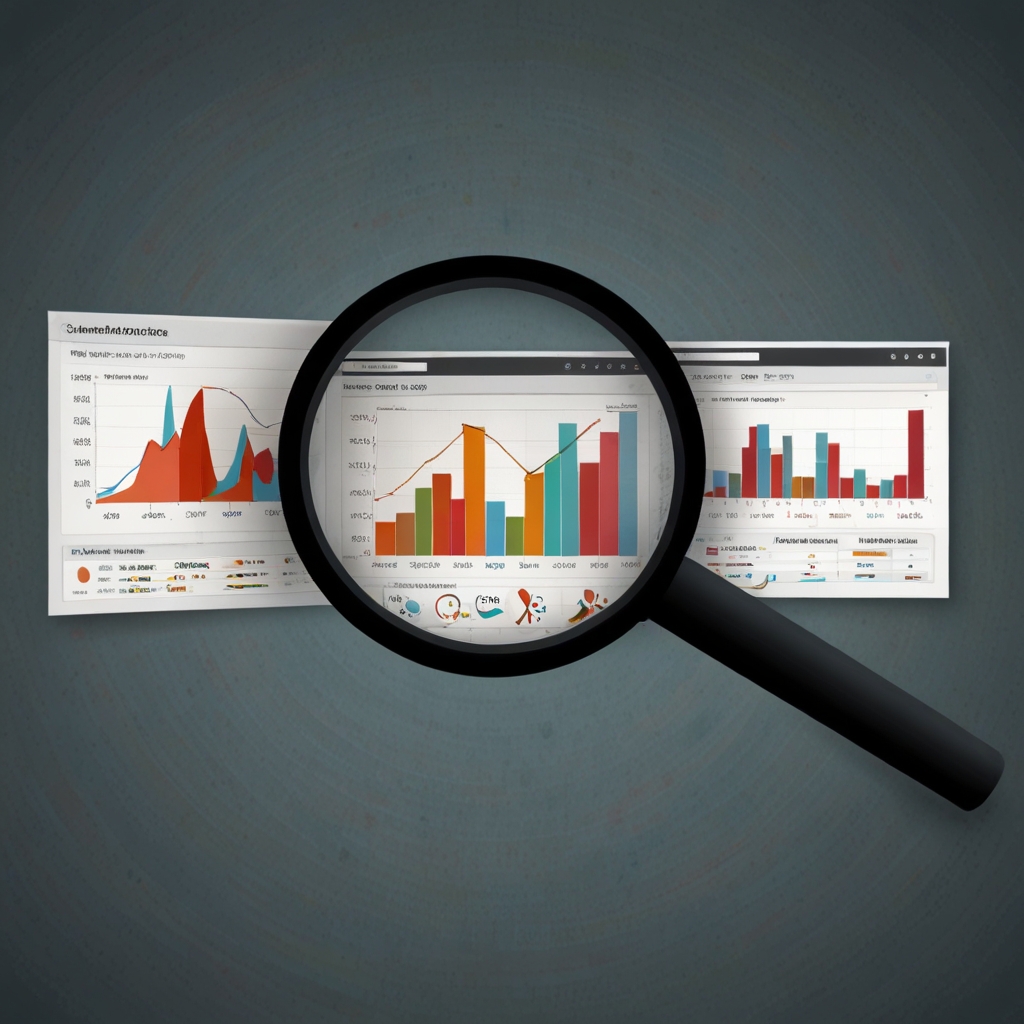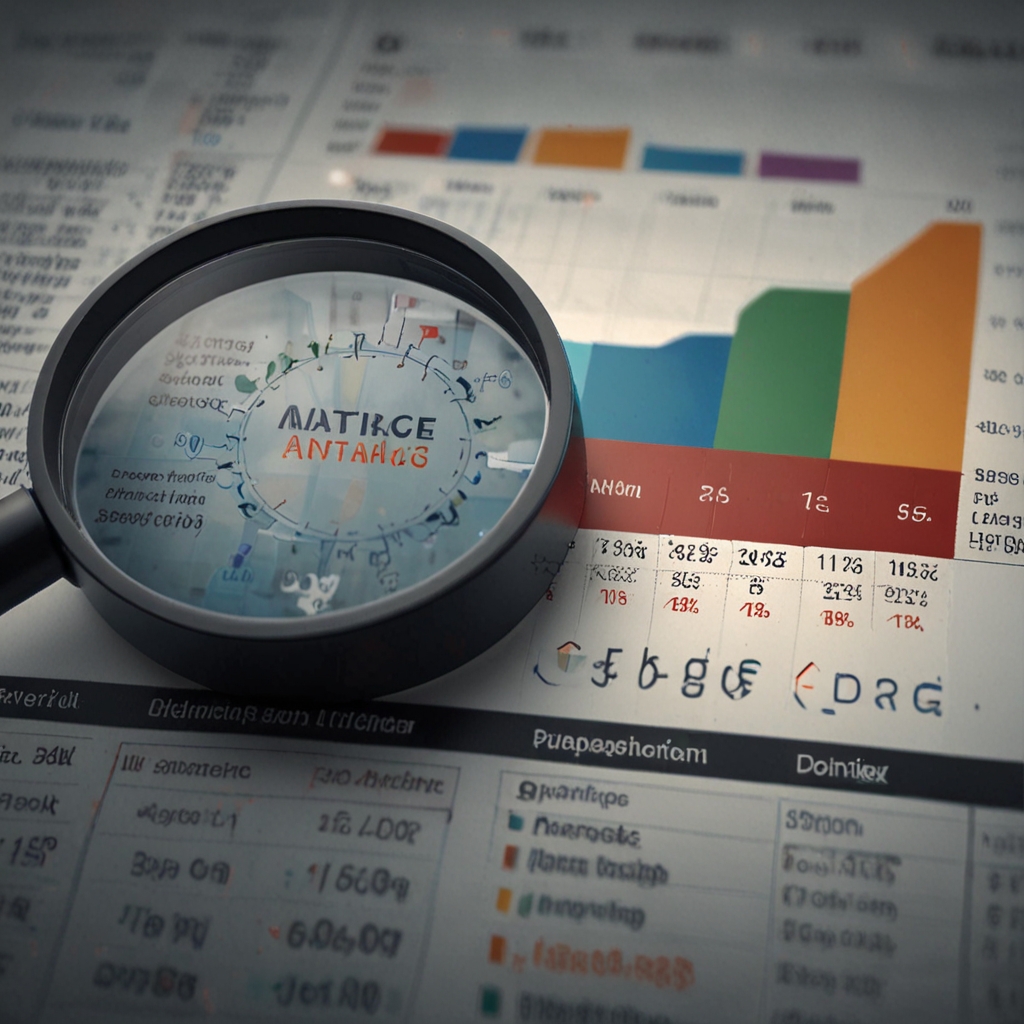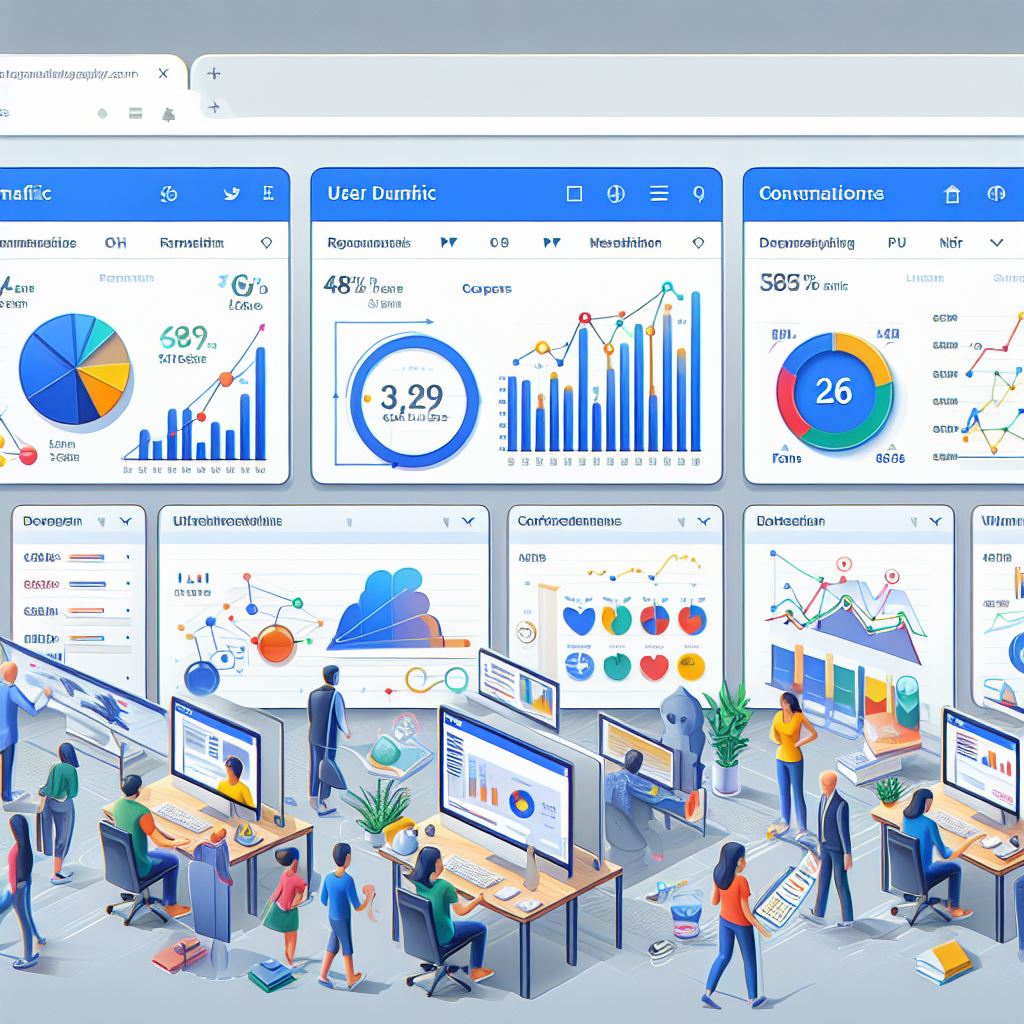Tracking social media impact with Google Analytics 4 enables marketers to understand their social media effectiveness efficiently. Google Analytics 4, a cutting-edge tool, evaluates user engagement, tracks metrics, and analyzes how social platforms contribute to business success. This article provides in-depth insights and practical advice on using Google Analytics 4 to assess and enhance social media strategies, offering detailed responses to challenges many businesses face today.
Table of Contents
- Maximize ROI with Effective Social Media Measurement
- Choose Right Metrics for Social Media Evaluation
- Using Google Analytics 4 for Social Media Tracking
- How to Configure Google Analytics 4 for Social Platforms?
- Optimize Google Ads with Social Media Analytics Insights
- Implement Social Media Insights for Campaign Success
- How to Track Cross-Platform Social Media Performance?
- What Steps Ensure Accurate Cross-Platform Data Collection?
- Analytics Event Tracking in Social Media Campaigns
- How to Use Google Tag Manager for Event Tracking?
- How Do Social Networks Affect Google Analytics Reporting?
- Why Analyze Social Referral Data in Google Analytics?
Key Takeaways
- Google Analytics 4 helps businesses track social media impact by analyzing metrics and user interactions in real time.
- Social media ROI hinges on measuring engagement, conversion rates, and campaign effectiveness accurately over time.
- Choosing the right KPIs involves considering user engagement metrics, such as social reach and competitor analysis.
- Google Analytics 4 setup for social media tracking requires understanding its unique features, which differ from Universal Analytics.
- A successful GA4 setup requires specific steps and tools, along with configuration support services from experts like Matrics Rule.
- Effective use of social media data tracking can significantly impact a company’s business decisions and overall strategy.
- Improving social media ROI through analytics involves leveraging insights and evaluating benchmarks for success.
Maximize ROI with Effective Social Media Measurement
Measuring social media ROI accurately involves evaluating how social media platforms contribute to overall business goals. By tracking social media metrics like engagement and conversion rates, businesses can quantify performance and align efforts with strategic objectives. In my experience as an SEO expert, analytics are indispensable for assessing social media success as they provide real-time insights, allowing for timely adjustments. Reports from HubSpot suggest that businesses using social media analytics see over 20% improvement in campaign effectiveness. Analyzing collected data impacts business decisions significantly by offering clarity on winning strategies and areas needing focus.
Choose Right Metrics for Social Media Evaluation
Key performance indicators (KPIs) are crucial for understanding the impact of social media on brand performance. Metrics measuring tools like engagement rates, social reach analysis, and conversion rates are vital for evaluating success. A study in 2022 showed that higher user engagement metrics often correlate with successful social outcomes. Conversion rates allow businesses to assess how effective social interactions are in driving sales or leads. Businesses often use social media success benchmarks and competitor metric comparisons to calibrate their efforts and optimize strategies.
Using Google Analytics 4 for Social Media Tracking
Google Analytics 4 tracks social media KPIs by integrating social media data with web analytics for comprehensive insights. GA4 requires specific setups to track KPIs accurately, such as configuring data streams and setting conversion events. In 2023, Google Analytics 4 has become increasingly popular due to its new features, which offer more detailed tracking compared to Universal Analytics. Real-time metrics in GA4 provide immediate insights into social media trends and user behavior, enhancing timely decision-making and strategy adjustment.
How to Configure Google Analytics 4 for Social Platforms?
GA4 configuration steps for social media involve setting up data streams, creating custom events, and using social integration tools. Setting up GA4 social media connections typically takes a few days, depending on the complexity and resources available. Tools like Tag Manager and GA Debugger assist in streamlining the GA4 configuration process. The cost for configuring GA4 varies, with basic setups being relatively low-cost, but comprehensive setups may require further investment and support services from experts.

- Users understand digital trends easily.
- Google Analytics 4 helps track visitor behavior.
- Companies improve content with data insights.
- Social media channels reveal audience actions.
- Analysts make better marketing decisions.
- Brands increase follower engagement.
- Reports identify successful campaigns.

Key Metrics for Tracking Social Media Impact with Google Analytics 4
| Metric | Description | ||||
|---|---|---|---|---|---|
| Users | Total platform visits | 5,000 | 3,500 | 4,200 | 2,800 |
| Sessions | Visit frequency | 6,300 | 4,000 | 4,600 | 3,200 |
| Session Duration | Avg time spent | 2 min | 1.5 min | 3 min | 2.5 min |
| Bounce Rate | Single-page visits | 45% | 50% | 40% | 43% |
| Conversions | Goals achieved | 300 | 250 | 270 | 200 |
| Engagement Rate | User interactions | 60% | 55% | 65% | 58% |
Optimize Google Ads with Social Media Analytics Insights
To measure social media ROI accurately, integrate Google Analytics 4 (GA4) with social profiles to extract detailed engagement data. Utilizing insights from this integration, you can determine which social media campaigns drive the most conversions, where, for example, Facebook might outperform Instagram for particular demographics. Track metrics like click-through rates, impressions, and conversion rates, as these are essential for evaluating social media success. Giving priority to these metrics helps in fine-tuning social media strategies and digital engagement approaches, ultimately leading to superior Google Ads optimization. Social media analytics insights offer a chance to derive specific Ad targeting analytics, contributing to clear Google Ads insights that improve business decisions with performance enhancement tools. Leveraging this data, brands like Hootsuite recommend continuous engagement data integration for streamlined Google Ads management.
Implement Social Media Insights for Campaign Success
Key performance indicators like reach, engagement, and sentiment can significantly influence a social media campaign’s success. In 2020, 80% of marketers found user engagement metrics, including likes, comments, and shares, vital for robust evaluation of social media platforms. Evaluating conversion rates is crucial, as it measures how many users take the desired action, impacting the overall social media assessment process. Social media insights implementation involves consistent frequency of analysis of these KPIs to integrate social data effectively into marketing strategies. Benchmarks such as average engagement rates allow businesses to measure social results evaluation against industry standards, ensuring an edge over competitor campaign insights. Tools like Sprout Social are often used by brands to enhance campaign success by keeping track of these insights rigorously.
How to Track Cross-Platform Social Media Performance?
Cross-platform social media tracking requires utilizing tools like GA4 and Hootsuite for comprehensive performance evaluation. Delivering accurate performance results across different social platforms involves measuring specific metrics like shares, views, and page visits. As of 2022, GA4 introduced enhanced analytics capabilities for cross-performance analysis, making it easier to compare social media metrics across platforms like Twitter, LinkedIn, and Pinterest. Platform-specific behavior, such as Instagram’s visual appeal, can greatly influence user interaction, necessitating specific cross-platform performance tracking strategies. Analyzing social diversity helps businesses understand these variations, crucial for effective cross-performance analysis. For instance, using tools like Brandwatch allows organizations to incorporate such platform-specific metrics efficiently into their strategies.
What Steps Ensure Accurate Cross-Platform Data Collection?
Maintaining cross-platform data accuracy involves thorough data accuracy steps like consistent tagging of URLs across social platforms. Employing data validation tools such as Supermetrics is essential to guaranteeing effective cross-platform data validation. Ensuring accurate data collection often falls within the responsibility of data analytics teams, who must adhere to specific social integration processes. Budgeting approximately 5-10% of the digital marketing budget for real-time cross-platform evaluation can ensure accurate data collection. Platform consistency checks assist in aligning all data collection efforts, thereby maintaining the integrity of cross-platform evaluations. Google Analytics offers comprehensive tools that many companies leverage to maintain cross-platform data accuracy for social media campaigns.

- Users spend over 2 hours daily on social media.
- Google Analytics 4 tracks 15 data points per user.
- 50% of traffic comes from mobile devices.
- 75% of marketers track social media outcomes.
- Brands see a 20% rise in visibility using analytics.
- Social media contributes to 10% of total revenue.
- Over 80% of users follow a brand online.

Analytics Event Tracking in Social Media Campaigns
Event tracking implementation in social media campaigns involves monitoring specific actions or engagements, like clicks or shares, to evaluate campaign success. Implement event tracking by setting up specific goals or events in your analytics tool, allowing precise social campaign tracking. Event tracking improves campaign performance by providing insights into user behavior, enabling adjustments for increased effectiveness. Platforms like Facebook Insights, Twitter Analytics, and Instagram Insights offer event tracking features, crucial for tracking success metrics and event data analysis. I found engaging campaign methodology helps in understanding audience needs, leading to better outcomes.
How to Use Google Tag Manager for Event Tracking?
Google Tag Manager methods include using tags to collect data on user interactions within your website for advanced analytics. Event tracking setup duration generally ranges from an hour to a few hours, based on the complexity of the site. Effective event tracking typically requires several tags, possibly between three and six, depending on the specific goals. GTM deployment budget might be minimal, as Google Tag Manager is free, but consider costs for premium analytics services. When doing social media event tracking, strategic planning of tagging requirements is essential for a smooth management process.
How Do Social Networks Affect Google Analytics Reporting?
Social networks impact Google Analytics reporting by influencing how traffic is interpreted in GA4 metrics and reports. Elements like social sharing buttons, referral links, and user engagement can alter the Google Analytics data landscape. Features such as hashtags, social mentions, and influencer tags are crucial for GA4 data interpretation. User interaction effects include user comments, likes, and shares, which affect GA reporting insights by altering report outcome evaluations. Twitter, for instance, may show varying click-through rates compared to Instagram due to network differences in user behavior.
Why Analyze Social Referral Data in Google Analytics?
Analyzing social referral data is essential for understanding traffic sourced from social platforms like Facebook and Instagram, enhancing strategic decisions. As of 2021, social referrals accounted for roughly 8% of overall website traffic, highlighting significant traffic proportion analysis. The role of social referral analysis in decision-making is pivotal, aiding in optimizing marketing strategies based on referral data importance. Tracking cost estimation for social referral data is typically low, leveraging Google’s free analytics tools unless premium analytics services are employed. Use strategic data analysis to evaluate social influence metrics for a comprehensive referral impact study.
